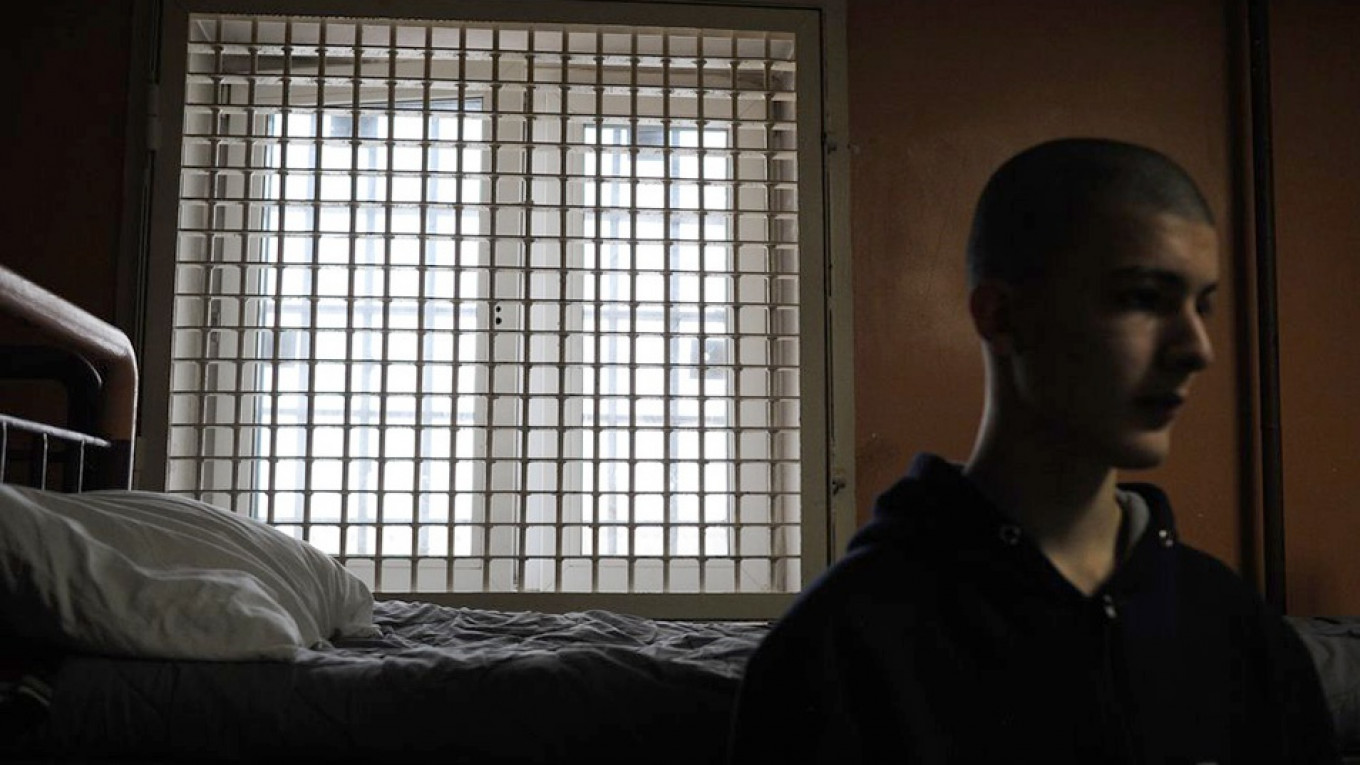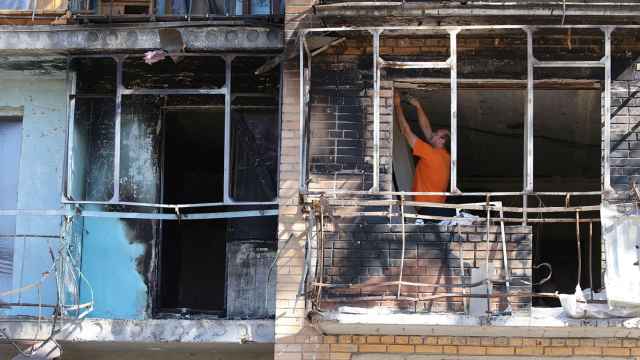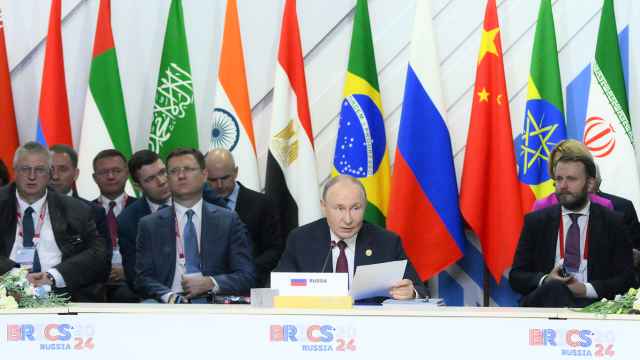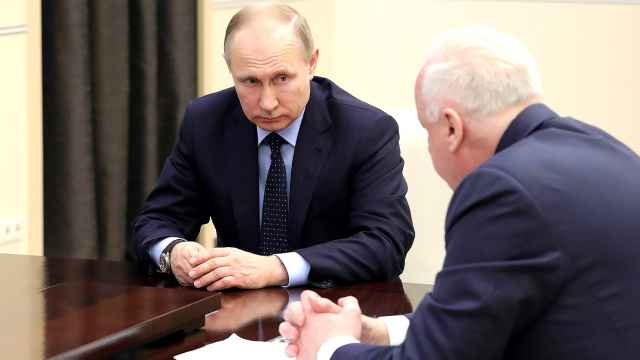The video from Yaroslavl Penal Colony 1 is a watershed moment for Russian human rights and a technological breakthrough that is fast becoming a historical milestone.
The authorities have long understood how to deal with oral and written evidence of prison torture. The Federal Penitentiary Service (FSIN), Prosecutor’s Office, state-appointed ombudsmen and even members of the public all have their agreed-upon responses and assigned roles. Every time a shocking letter reveals the horrors inflicted on prisoners, each party knows who should yell “Foul!” and who should announce that yet another meaningless prison inspection.
The most high-profile complaints against the FSIN were letters written by Nadezhda Tolokonnikova of Pussy Riot and Ildar Dadin, the first person to be jailed under one-man picketing laws. Everyone who wanted to evade culpability simply passed off the letters as the rantings of political activists who exaggerated in some places and omitted important information in others.
If someone files a complaint, it is necessary to investigate and verify the claims, and then there are as many opinions as there are people under the sun. That was the purpose of the Ren-TV program in which a cellmate complained about homosexual harassment by Dadin in an effort to discredit him and his claims of wrongdoing by prison staff.
In fact, Russia’s disinformation industry is so highly developed that it can effectively diffuse reports so shocking that they would throw any other government into crisis. Every new disclosure of yet another horror is neutralized by government-sponsored propaganda, disinformation campaigns and PR manipulations designed to preserve the status quo.
In this system, evils occur on the fringes of public awareness, and even revelations of wrongdoing have almost no real impact because everyone with a stake in the game will quickly drown out all criticism without even waiting for the command from above.
But the evidence of torture in Yaroslavl has broken the old boundaries. Instead of the written or oral testimony of prisoners, lawyers, or human rights activists, a detailed video has made it possible to not only witness the horrors firsthand, but to also identify the individual perpetrators by name and locate them on social networks.
Those pages reveal that they are in many ways like anyone else in uniform: they have families, take vacations, go fishing, enjoy the usual stupid jokes and exchange holiday greetings. This is the only way reality can shake our technologically sophisticated society: when crime is recorded on HD video and the identity of each offender is accompanied by a detailed bio in a universally understood format that allows for some form of feedback.
Tolokonnikova and Dadin directed their accounts of prison abuse to, if not like-minded people, then at least others who live in the same informational milieu – one in which the blog by opposition leader and government whistleblower Alexei Navalny carries more weight than state-run news programs.
By contrast, a video with embedded location and time coding is by nature addressed to everyone and speaks in a language accessible to all. And, unlike written and oral complaints, the authorities cannot simply claim that “an inspection will clear this up” and no government press service can argue that “the facts have not been confirmed” because the facts in this case are indisputable.
However, it would be naïve to believe that the Yaroslavl video will mark a significant turning point in Russian society, that it will deliver a crushing blow to penal system abuses, or that the scandal will lead to something of historic importance.
It is enough to recall the shocking video of police Major Denis Yevsyukov firing his gun at shoppers in a Moscow supermarket in 2009. There, too, the fact that the crime was captured on video played an enormous role. It transformed what would have otherwise ended up as a few vague lines in a summary of criminal incidents into a national sensation prompting years of heightened public attention to police crimes, the resignation of a government minister and even the renaming of the police itself.
However, the incident did nothing to change the nature of the system or its relationship with society. With the exception of a few insignificant and superficial corrections, everything remained the same.
The undeniable abuses captured by the Yaroslavl video simply shift the line of debate from “This requires further clarification” to “How indicative is this of a wider problem?” No single video can answer that question.
Indeed, it would take the unlikely appearance of similar videos from a host of other Russian penal colonies to prove widespread abuse. The case of 17 sadists in a single Yaroslavl colony does not reflect well on the system, but it is a manageable setback. The authorities can pass it off as a one-time failure, a chance excess.
Criminal charges have been brought against the offenders, they have been suspended from their jobs and one or more may even be arrested – although their exact status remains unclear. But the Yaroslavl scandal has shed light on a tiny patch of a huge dark area of Russian society, and what remains beyond the edges of that spotlight will now become the focus of the usual attempts at obfuscation.
Selective justice is, if not the very foundation of Russian law enforcement, then at least the key principle by which the authorities can apply the law exclusively for their own benefit while remaining immune to it themselves. For Yevgeny Makarov, the man being tortured in the Yaroslavl video, the punishment of his assailants will still be a victory for justice – very good news given current conditions in Russia.
However, his lucky victory calls to mind someone who has won the lottery: it might be a windfall for him, but it does nothing to help anyone else. The video from Yaroslavl Penal Colony 1 has only changed the lives of those lucky or unlucky enough to be captured on screen. For the rest of Russia, life continues as before.
Oleg Kashin is an opposition-leaning Russian journalist, formerly of Kommersant, who writes a weekly column at Republic.ru, where a Russian-language version of this op-ed was first published. The views and opinions expressed in opinion pieces do not necessarily reflect the position of The Moscow Times.
A Message from The Moscow Times:
Dear readers,
We are facing unprecedented challenges. Russia's Prosecutor General's Office has designated The Moscow Times as an "undesirable" organization, criminalizing our work and putting our staff at risk of prosecution. This follows our earlier unjust labeling as a "foreign agent."
These actions are direct attempts to silence independent journalism in Russia. The authorities claim our work "discredits the decisions of the Russian leadership." We see things differently: we strive to provide accurate, unbiased reporting on Russia.
We, the journalists of The Moscow Times, refuse to be silenced. But to continue our work, we need your help.
Your support, no matter how small, makes a world of difference. If you can, please support us monthly starting from just $2. It's quick to set up, and every contribution makes a significant impact.
By supporting The Moscow Times, you're defending open, independent journalism in the face of repression. Thank you for standing with us.
Remind me later.








